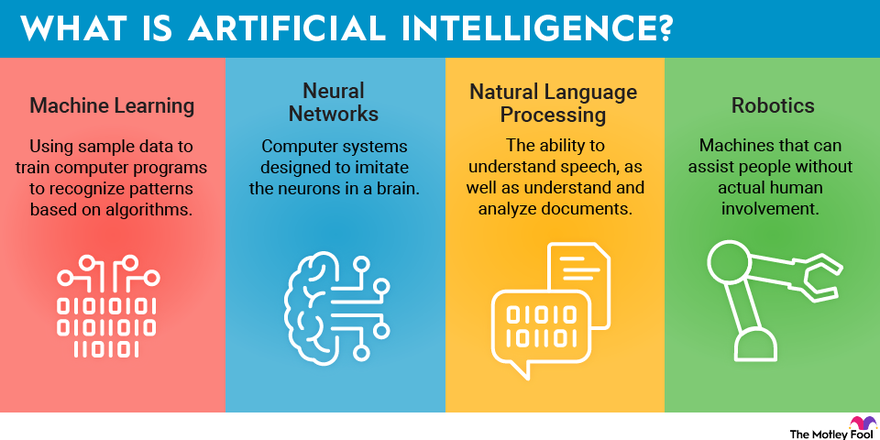Artificial intelligence
👉Introduction
Artificial
intelligence (AI) is the ability of a computer or computer-controlled robot to perform tasks that are commonly associated with
the intellectual processes
characteristic of humans, such as the ability to reason. It’s generally agreed that artificial intelligence is the use of computers to mimic human judgment. These days, it’s used by almost every industry, often in ways that are too subtle to be noticed.
Artificial intelligence uses machines -- generally, computers -- to mimic human intelligence. AI has become common in applications that range from the creation of generative chatbots to the selections displayed.

Research in AI has focused chiefly on the components of intelligence like learning, reasoning, problem solving, perception, and using language.
Categories of artificial intelligence
There are three basic categories of artificial intelligence:
- Narrow AI: Artificial intelligence can be built for very specific tasks, such as playing a game, keeping spam out of your inbox, helping you find a nearby restaurant with your smartphone, or even driving your car.
- General AI: With more resemblance to human capabilities, general artificial intelligence is a more advanced form that can involve visual and language processing, contextual understanding, and the ability to adapt to a range of tasks. It’s considered to be far off in the future.
- Artificial super AI: Imagine a machine that’s smarter than you -- much smarter. Artificial superintelligence is still only a theory, but advances in nascent AI are raising interesting and troubling questions for the future of humanity.
Now a days, AI is widely used in different sectors such as household, Industrials, Finance etc. AI is very useful for human beings for study, research, works and many more.
🙏


No comments:
Post a Comment